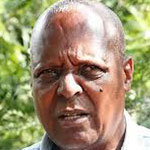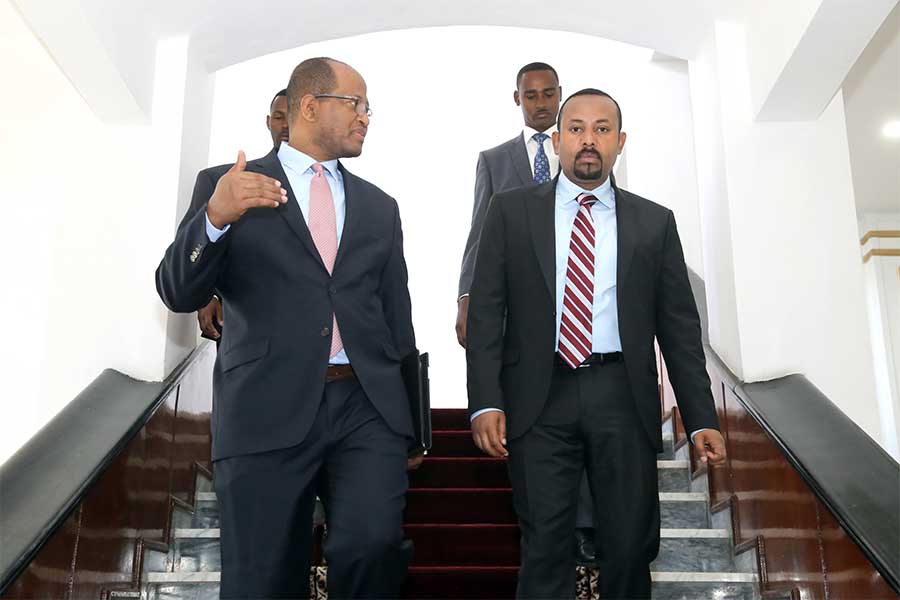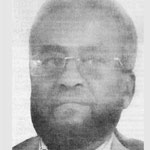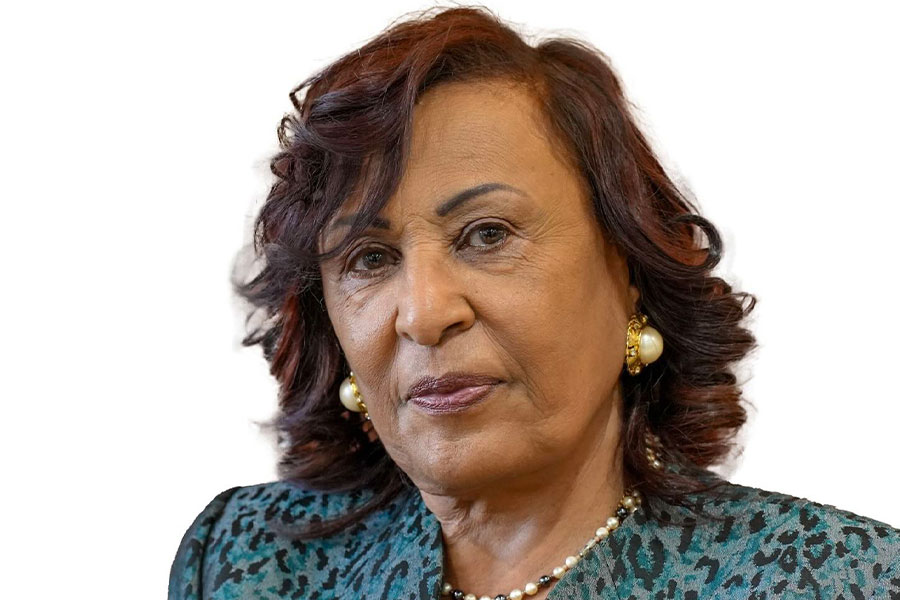
Q: When it was established over 77 years ago, the United Nations was created to stop wars. Look at the world today; it is full of violent conflicts from Ukraine to Ethiopia. Do you find it frustrating to work for the UN system in a world still at war?
Ahunna Eziakonwa:I do not find it frustrating to work for the UN system. I find it frustrating that we cannot always prevent the ugly consequences of war and the suffering and misery it creates for people. That frustrates me, and it keeps me up at night.
But I chose to work for the UN. It was a deliberate and intentional choice. There are many UN agencies; I work for the development arm of it. I think it is still the best chance that the world has to find a way to lay the foundations that help us to live in peace with each other. I have not found anything better.
When I am most tempted to doubt, and I guess I am fortunate in this sense, I am reminded of all the good work that I have seen and witnessed, all the lives that have been saved and improved, as well as all the dignity that has been established. I am reminded of my colleagues who have given their lives for this work.
Q: When is your moment of doubt? What would that be?
It is often when multilateralism seems to be disintegrating; global solidarity and collective responsibility to protect and keep people safe and dignified seem to dwindle. We have seen that in the last few years. Multilateralism has always been presented as a solution, and it has worked at critical times in history with nations coming together to make a difference and the world better. But it was never perfect. It needed a facelift and a remake.
I still believe that an organisation like the UN can help remake that.
Q: Despite the growing global challenges, multilateralism appears to have lost its appeal. The unipolar world is giving way to the multipolar world, where countries fight over non-issues because they want to test and undermine each other. How much does this affect you as a development person working for the UNDP and the UNDP-Africa?
In a perfect world, we would want the elite with the power to agree on several things that we ought to do. After all, they did agree on the sustainable development goals in 2015. They touch on governance and justice, which are complex issues. They even touch on the most contentious issues of climate and nature-based solutions. This, no one believed, for it remains a divisive issue.
It is deep and far-reaching, making me proud to be a UN official. We have the framework to unify around the kind of world we want to see; one that is peaceful, prosperous for all, and with the potential to save the planet. It is about people, the planet and prosperity. We have got less than 10 years to achieve it.
The world has been hit by several tsunamis in the last few years, retarding the progress we saw on the development side. We have had COVID, which was a slap in the face. We now have a war in Ukraine. Then, of course, the huge impact of climate change led to a setback.
In the last two years, we have seen a consistent downward trend in the human development index, where poverty levels were back to 2016. We have much catching up to do, which is why modern capitalism must be rethought, reshaped and strengthened. More than ever before, we will need each other in this world.
Q: The Millennium Development Goals (MDGs) were more focused than the SDGs. One of the criticisms directed at the UNDP, in particular, is that it is not focused because it is trying to deal with almost everything under the sky. Do you accept this as fair criticism? What would you want the UNDP to focus on, particularly in Africa?
I chose to work for the UNDP because it does not just try to do one thing. Human development is not just about a single variable; it is not just about health, education or water. It is the whole chain and multi-dimensional, which the UNDP specialises in trying to understand. That is the UNDP brand that I find personally attractive.
Q: Are you not limited by your financial or other resources that you cannot do everything on your own?
We are a UN agency, and our funding comes primarily from member states of developed and developing countries. Our program countries contribute immensely to their own development, although we do not give that much credit to them. Ethiopia has contributed 22 million dollars to peace work, for instance. That could grow when you start to have your value proposition, and the government sees where they could get more mileage through a UNDP channel than their own systems.
I will give you an example.
In Senegal, the government wanted to close the development deficit in remote areas where extending services had been difficult. They gave 200 million dollars to the UNDP to help accelerate development within two years. We did the work and impacted places not touched by development. The government asked us to cover 54 territories without development for years because their capacity and systems were not yet there.
We did this within two years; then, the government took over a second phase. The Senegalese systems have now been strengthened. They have seen the model, adopted it, and are doing it themselves.
Q: Your priority is ending poverty. Do you believe poverty is an individual responsibility? Or is it a structural burden society imposes on individuals?
I always think poverty is a mindset issue. This continent has no business being poor; it has more natural resources than some countries giving it money. We have this predominant effect of either colonialism or whatever tells you that you cannot.
We still have unfair governance systems at the global level regarding trade and the valuation of African products. We still have very unfavourable conditions, with African countries borrowing six and seven times more than other countries, particularly in the rich world. When you start to break it down, the reason for this is that Africa has a perception issue. The risk rating of the continent is very high despite returns on investment being much higher in Africa than in many places. When Africa borrows, it becomes a debt trap because the amount of money put forward to service that debt is off the charts.
Africa’s ability to industrialise and add value to its natural resources is not so much because it does not have the scholarship to put the systems and machinery in place for this to happen. There is a global structural fault line where Africa is designed to service economies in the rich world in terms of raw materials. We have never overcome this. We are at a point where the world got so used to tap-in raw materials from Africa that it would not stand for Africa adding value to its products.
These systems must change. There must be more justice in how the world is configured at the economic, political and social levels.
Q: Are you calling for a reform of the existing global order? To what?
I am not the first to say it. There is a consciousness that the system is not designed to favour poor countries and complete poverty eradication. It needs to be looked at. The elephant in the room must be addressed somehow if we will get there.
Q: For all your existence as the UNDP, the resources you mobilise, and the work that you have put in through the years, there has been a series of setbacks recently. Things are sliding back. The UN Global Humanitarian reports that 110 million people in sub-Saharan Africa were under emergency humanitarian food assistance last year. There have been post-pandemic setbacks in education, health, and food security. Do you think the UN in general and the UNDP are perhaps too old and too traditional to deal with these issues to reverse course for the better? Is it that maybe these are institutions that have stayed too long and are out of touch, and maybe new global institutions must exist?
I do not want to lean towards the traditional and protective mandate. I believe in change, the evolution of things, innovation, creativity, and adapting to new realities. What made me apply for the post at the UNDP was when I saw our Administrator lay out his vision for the organisation, putting innovation at the centre. We need to innovate as an organisation to become future-smart. I continued to stay with the UNDP because it is always refreshed. We have so much room to reinvent ourselves, which is what we are doing.
We never dealt with financing, for instance. We were a fund in our creation; we now know that funding as a concept is outdated. When you look at the bill for the SDGs, it is not about official development assistance anymore; it is about financing. And the UNDP established a finance sector hub, although it is not a financial institution like the World Bank or the AfDB. We are still a development services agency. But we know the critical importance of financing the fiscal space for fostering development. We want to understand and build it into our DNA. And this has happened just in the last few years. The same thing happened with climate; again, a new disposition of the organisation.
Q: But what have you got to show for all that?
We have UNDP offices accompanying countries to look at innovative and impact financing. We are mobilising bonds, helping countries understand the issues on, for instance, how to get around the impact of debt on development financing. We are leading on what we call an integrated financing framework of countries.
Q: But these are policy issues.
They are not policy; they are delivering results. There is a false narrative that development financing must always come from outside. In the past, we focused a lot on aid. Now we know that aid is important only up to a point. We must enable countries to gaze beyond aid into their financial capacities and capabilities. When COVID happened, and every country went into its own shells, that was when many African countries realised the resources they had and the fiscal space they could mobilise.
Even with all the depressing things happening in the world, and when I am most tempted to doubt, what boosts me is the privileged position of covering 46 countries. I go to these countries and observe what our teams are doing. I do not just listen to the team. I listen to the clients. I think the attractiveness for them is that we are accompanying them; we are not taking over. We are building capacities and agencies.
Q: In the process, you are criticised for being too cosy with the government of the day in the countries you are present.
A criticism that I embrace. Point out to me any country that could develop without a capable state and institutions? We are guests invited by the country. There has to be an authority to work with. We cannot replace the state; hence we need to invest in the emergence of states accountable to their people. If you look at all the countries that have succeeded, they have strong and capable states that started by creating trust between them and society because states need society to trust them.
Q: Even when a government in a country is not behaving up to international standards, and there are local contentions that end up in massive wars?
That is why we work on governance, one of the areas and pillars of the UNDP. If you have a breakdown of trust and no social contract, it is a non-starter for development. For us to think that we can diminish the state’s power, we have to diminish the power of the oppressing state - that I would sign off for.
If a state oppresses its people, I will not feed into that state to continue oppressing them. I will look for entry points to make that state accountable, empowering the citizens to hold their leaders accountable and do right by them. It is not my role to remove that state. We are not into regime change; this is not what the UN is created for. But we need to have international standards all these countries have signed up for. That is a value the UN brings to states. Our role is to remind the states failing these standards and the need to embrace and comply with them.
Q: You are very passionate about Africa’s free trade deal. Despite your enthusiasm, several African countries see no match on the ground except for signing up for an agreement. Some of the countries have not even ratified the agreement. Are you happy with the snail’s pace many African countries are going?
The African Continental Free Trade Agreement (AfCFTA) is a miracle. I have been a student of this continent for a long time. Fifty-five countries, diverse in every way, were able to adopt AfCFTA in two years. Within a year, we had ratification that made the threshold. At the AU Summit, two more countries submitted their rights instruments, bringing the countries that have now ratified the deal to 46. I think this was a miracle. How long did the European Union (EU) take to form itself?
Q: Isn’t this seeing the glass half full?
I think that is the way we have to see it. Africa does not have the luxury of not getting the AfCFTA on a speed lane of implementation. There should be some impatience around it. Yes, we can record the progress and commend and salute the speed of ratification. It is not a small thing that we have all these countries, within only a couple of years, ratified. It signals their legal commitment to give each other free trade.
How do we make this real, not just at the level of the elites who trade, but for the ordinary man and woman who should benefit from this?
Look at the people who trade along our borders. Most women go through hell while crossing borders for the lack of free movement and enabling environment. How can we, through this AfCFTA, identify changes that will ease the way for them?
Q: After you left Ethiopia in 2019, this country went through a bloody civil war that consumed the lives of hundreds of thousands of people. Do you feel the UNDP has done enough to prevent the war?
This is a tough question for me. For someone who loves this country, who feels that this is my second home, did I imagine that? Did I leave here on a high? Peace had returned to Ethiopia. The struggle in our minds was over.
Q: Did you misread?
We must be humble as international actors. I am not Ethiopian; however much I love it. And I only lived here for three and a half years. I cannot claim that I understood everything about Ethiopia’s society. It would be doing this country a disservice to even suggest with such boldness that I could have read this, that and the other.
Not everything was imagined or even predicted. Things happen that you did not imagine would happen. Was it painful? Yes. I was invested as a development practitioner that this country would go full swing on development, and the world would rally behind it and its 100 million people. Most were still poor, with unmet needs, and there was so much to do. It was painful.
Did I misread? I cannot claim to be an expert after only a few years. We probably could have listened more and charged ourselves to understand the complexity of the transition here. We failed by looking at things too much on the surface and thought that it was simple, where we had quick fixes. The UN system is learning from this that these complex transitions require patience.
Q: Could you have said more about the war? The UNDP has been criticised for being complicit in the whole process and during the entire time.
I do not know if that is a fair criticism because the UNDP never supported wars. It is not in our play; we do not support wars. Period.
Q: Neither have you spoken against it?
Of course, we have in different ways, not just in the UN system. We were constantly looking to find solutions to arrest this [the war] because it was destroying lives and the potential of this great country to evolve into a prosperous nation. It was our preoccupation throughout the period that we celebrate peace today.
But were we the main actors? Was it up to us?
It would be arrogant to think that we put ourselves in the place of God to arrest this conflict. We were doing everything, whether it was the Secretary-General or the appropriate entities in the UN system, to bring a solution to the problem. The effort was there; I saw it from the inside. It might be difficult to see from the outside because a lot of it was done in constructive and not publicly destructive ways to the course. A lot went behind the scenes that we could not announce.
Q: What would be the biggest lesson you in the UNDP-Africa got from the disruption and transformation of life the post-pandemic has brought?
Many lessons. Digital came out quite strongly as part of a solution. We have understood the value of digital in a context of resilience, building, and shock-proof for development, but also accelerating it in many ways. So many things we did not think could be done so quickly happened when we applied the digital lens.
The second is the state’s role in crises and the social contract to protect. Shocks are now the new normal and will stay with us. Many people were left behind during COVID. And governments were scrambling to see how they could reach these populations. We had only 20pc of Africa with social protection mechanisms. The UNDP was right there, helping countries use digital technology to identify where the poorest and most vulnerable live. We now began to invest in assisting governments in understanding the value, the importance, in times of uncertainty and crisis, of a social protection culture as a state responsibility.
The other thing that hit us was realising how much of Africa’s economy was informal. COVID brought this like a slap on our faces. When countries scrambled to put some stimulus, they discovered that people were not in the books and that 80pc of the economy was informal. We worked with the International Labour Organisation (ILO) to get states to understand the importance of formalising it.
Q: How do you characterise your meeting in Addis Abeba with your staff from across Africa?
It is always something close to my heart to connect with the staff on the front lines to share solidarity with them. It is refreshing to come and connect with them, hear what they have been going through and extend words of encouragement and appreciation.
It is tough when you are on the program and operation side, facing everything a country faces. We also have a cost-of-living crisis. We recognise it in our staff; many have become breadwinners overnight. The paycheck is tighter. And COVID has been hard on everybody.
Q: What was your core message?
Invest in taking care of each other. Staff spend more time with their colleagues than they do with families. These are challenging times. Let’s not add to each other’s stress. Let’s help one another and check ourselves every day.
PUBLISHED ON
Mar 04,2023 [ VOL
23 , NO
1192]

Sunday with Eden | Dec 19,2020

Viewpoints | Oct 31,2020

Verbatim | Apr 06,2019

Viewpoints | Feb 03,2024

My Opinion | Jul 10,2020

Fortune News | Oct 26,2019

Commentaries | Jun 28,2025

Verbatim | Apr 20,2019

Verbatim | May 31,2025

Fortune News | Apr 25,2020

Dec 22 , 2024 . By TIZITA SHEWAFERAW
Charged with transforming colossal state-owned enterprises into modern and competitiv...

Aug 18 , 2024 . By AKSAH ITALO
Although predictable Yonas Zerihun's job in the ride-hailing service is not immune to...

Jul 28 , 2024 . By TIZITA SHEWAFERAW
Unhabitual, perhaps too many, Samuel Gebreyohannes, 38, used to occasionally enjoy a couple of beers at breakfast. However, he recently swit...

Jul 13 , 2024 . By AKSAH ITALO
Investors who rely on tractors, trucks, and field vehicles for commuting, transporting commodities, and f...

Jun 28 , 2025
Meseret Damtie, the assertive auditor general, has never been shy about naming names...

Jun 21 , 2025
A well-worn adage says, “Budget is not destiny, but it is direction.” Examining t...

Jun 14 , 2025
Yet again, the Horn of Africa is bracing for trouble. A region already frayed by wars...

Jun 7 , 2025
Few promises shine brighter in Addis Abeba than the pledge of a roof for every family...